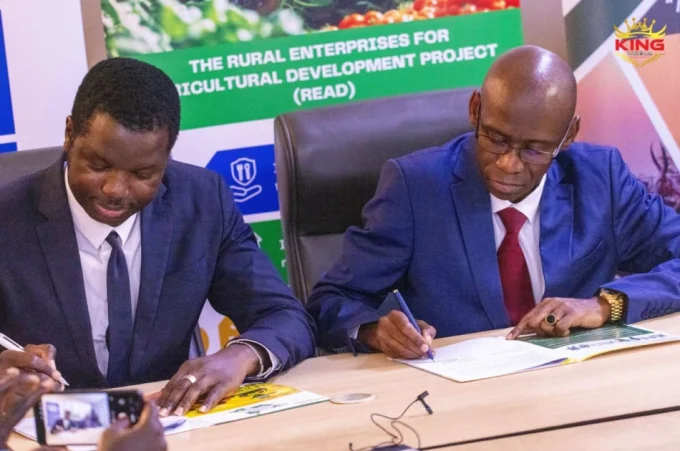Climate change threatens a decade of strong economic growth and social gains across Africa, according to a new report launched today by UNDP. The report was launched in coordination with the Africa Adaptation Initiative at this year’s climate talks in Poland, which have brought leaders from across the globe to build momentum to reach the goals outlined in the historic Paris Agreement.
“Africa is at a tipping point. Nations across the continent have achieved impressive economic, political and social growth in recent decades. Yet, there are still high disparities between the rich and poor. Poverty, while reduced, remains a serious issue in many countries. And climate change, droughts, floods, changing rainfall patterns and conflict have the potential to unravel efforts to reduce hunger and achieve the goals outlined in the Paris Agreement and 2030 Agenda for Sustainable Development,” said Ahunna Eziakonwa, Assistant Secretary-General and Director, UNDP Regional Bureau for Africa.
The report looks at case studies from national climate change adaptation efforts supported by UNDP across Africa for the last 15 years with the financial backing of donor bodies such as the Global Environment Facility (GEF).
“Least developed countries in Africa are among the most vulnerable to climate change, yet the least able to adapt. In many cases, they lack the technical, financial and institutional capacity to identify the best ways to build resilience,” said Gustavo Fonseca, Director of Programs, Global Environment Facility. “With around US$1.3 billion of voluntary contributions from donors, the Global Environment Facility Least Developed Countries Fund (GEF-LDCF) holds the largest portfolio of adaptation projects in the Least Developed Countries. The majority of that funding goes to Africa, where most LDCs are located.”
While initial climate change adaptation initiatives show good potential for economic viability, livelihood enhancement and vulnerability reduction in Africa, the report finds long-term sustainability will depend on the prevailing levels of poverty, the wider context of policies and regulations, access to markets and financial services, as well as government capacity to provide continuous technical support to communities.
“Make no doubt about it, climate change is one of the largest risk multipliers for the people, environment and stability of the continent,” Abdoulaye Mar Dieye, Assistant Secretary-General and Director, UNDP Bureau for Policy and Programme Support. “In our global economy, these risks need to be addressed urgently with transformative climate investments that will mainstream and accelerate pilot climate actions to create real, lasting impact for the millions of people across the continent whose lives and livelihoods are at risk.”
If the world is not able to reach global targets to keep temperature rise below 2 degrees, the nations of Africa could reach a “tipping point,” according to the report authors, where exponentially increased challenges and threats would arise from higher temperatures.
These tipping points have the potential to create new famines and undermine global efforts to end poverty and hunger by 2030. In turn, high levels of poverty and low levels of human development limit the capacity of poor people to manage climate risks, according to the report, placing further stress on already overstretched coping mechanisms that will perpetuate poverty traps.
Taken together, this raises the potential for an increase in eco-migrants, more catastrophic disease outbreaks (such as the 2014-2016 Ebola outbreak in West Africa, which took over 10,000 lives), and increased instability.
For the first time in over a decade, world hunger is on the rise, affecting 11% of the global population, according to recent estimates from the Food and Agriculture Organisation of the United Nations (FAO). In 2017, crop destruction from the Fall Armyworm, strong droughts induced by an abnormally strong El Niño cycle, and a rise in conflict in places such as Nigeria, Somalia and South Sudan, were the chief culprits in a serious rise in food insecurity. At the peak of the El Niño crisis from 2014 to 2016, some 40 million people in Africa required emergency assistance. This number dropped to around 26 million in 2017, according to the report.
READ: FAMILY BANK SETTLES NYS SUIT OUT OF COURT, TO BE FINED SH64.5M
“Taking reactive approaches to food security and disaster recovery costs the people of Africa billions of dollars in lost GDP, and syphons off government resources that should be dedicated to education, social programmes, healthcare, business development and employment,” said Eziakonwa.
According to the report, recent studies indicate it is likely the true costs of adaptation will be substantially higher than originally projected, and will require creative financial mechanisms and substantial engagement with the private sector to meet.













1 Comment